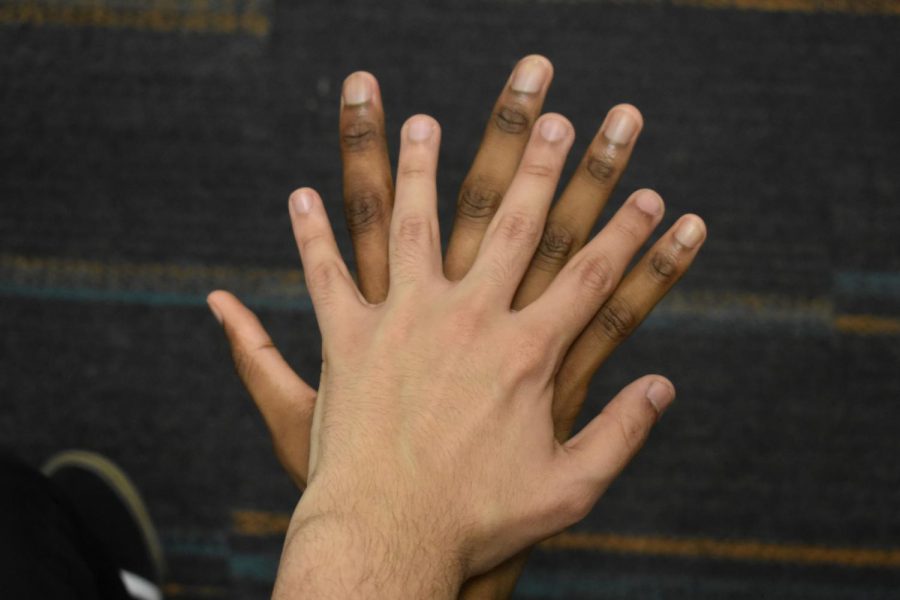Darker skin tones lead to more racial division
“Colorism,” or increased discrimination against darker-skinned minorities, was the topic of a panel discussion on campus during Black History Month.
March 1, 2019
Dark-skinned black people face greater discrimination than those with lighter skin, speakers told a campus audience in February.
As part of the school’s Black History Month program, Professor Nicole Williams, chair of AACC’s Human Services Department, led a panel discussion about “colorism,” or discrimination against dark-skinned African-Americans compared with those who have lighter skin tones.
Panelist Helena Bryant Holland, a second-year human services student who co-organized the event, noted that the issue of color affects other ethnicities as well.
Bryant Holland said she has observed “a dysfunction in our ethnic groups on campus with invalidating ourselves and others.”
Williams explained that a goal of the event was to “educate everyone about colorism and all the ways it is impactful and harmful” in the world and on campus.
The discussion began with panelists explaining the origins of color prejudice in slavery and colonialism. Williams went on to show how change is slowly occurring with the inclusion and promotion of more dark-skinned entertainers such as Kenyan-Mexican Lupita Nyong’o and Dominican-American Amara la Negra.
Williams said the media tends to show more light-skinned celebrities, giving the public the impression that “lighter is better.”
Panelist Dr. Deidra Dennie, AACC’s chief diversity officer, noted that while films like “Black Panther” did much to promote darker-skinned actors, it was still just a movie.
“I hate to break the news to y’all, but Wakanda’s not real,” she chuckled, adding levity to a heavy topic. “But it did raise awareness of a very real issue.”
Dennie said colorism is present in many workplaces. People with darker-toned skin, she said, are more likely to have to work harder than others to prove they, too, can be worthy of promotions and payraises.
“An awareness of colorism in the workplace helps everyone,” Dennie said. “It takes it out of the shadows in a way it can be examined, deconstructed and addressed in a way that heals.”
Audience members said the message was important.
“It’s eye opening,” Kait Warner, a second-year nursing student, said. “It … needed to be talked [about] out loud to end stigmas. … Everything is equal and beautiful.”
Myrian Garcia, a first-year political science student, said she “can relate [to the colorism discussion] because I have various ethnicities in my family. More discussions need to happen.”












